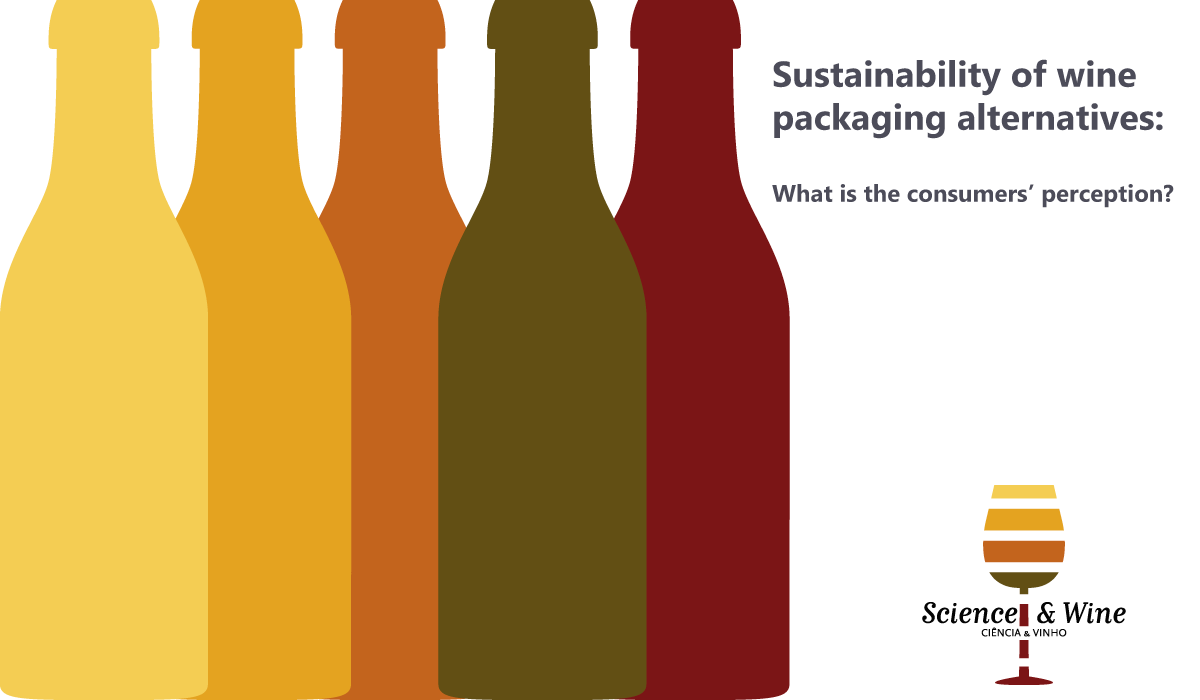By Carmen Ferrara and Giovanni De Feo
Glass is the most commonly used packaging for wine worldwide. However, one of the main causes of environmental impacts of the wine life cycle is the production of glass bottles due to the high incidence of its weight and the consequent huge consumption of energy for its production. Unfortunately, people confuse the concept of recyclability with that of sustainability. Using lighter packaging alternatives (such as bag-in-box, aseptic carton or PET bottles) significantly decreases the environmental impact of the wine life cycle. In Italy, there is widespread scepticism towards wine bottled in alternative packaging. For this reason, a preliminary survey was carried out, addressed to a sample of 1000 Italian wine consumers in order to explore their perception and preference toward wine packaging alternatives more sustainable than glass bottles and their interest in buying wines packaged in these alternatives.

The survey was conducted through the development and administration of a structured questionnaire. Data collection was performed through the administration of the online questionnaire (advertised through social networks, online forums and word of mouth).
In this way, a sample of 1000 people completed the questionnaire in the period between November and December 2017. When this number of valid participants (i.e. Italian participants over the age of 18 who were wine consumers) was reached, the questionnaire administration was stopped.
More than 60% of our respondents is under 40 years old and the men in the sample outnumber the women.
The results of the survey showed how most of the respondents (91%) are not willing to consider packaging alternatives for wine and want to buy only wine packaged in glass bottles mainly because they consider alternative packaging not suitable for containing wine.

Despite this, about 62% of them state that they would be willing to re-evaluate the purchase of wine in alternative packaging after being informed that, for most wines, the quality of the wine does not change in alternative packaging and that by using them the wine sustainability could improve. This last sample fraction drinks a little (less than one wine glass a day); their buying choices are affected by neither the main wine features (such as producer company, country of origin and information on label) nor those of the glass bottle (such as weight, colour, and shape).
On the contrary, the sample fraction that is not willing to re-evaluate the purchasing of wine in alternative packaging mostly drinks a little more (one glass per day), gives great importance to the features of the glass bottle, in particular the bottle weight and its purchasing choices are significantly affected by the wine attributes.

Therefore, this preliminary study has identified and characterized a wine consumers fraction less traditionalists that, hence, could change their mind regarding the purchasing of wine in alternative packaging after a campaign of communication about the environmental advantages of using wine packaging alternatives and the adequacy of such packaging to contain wine, while maintaining its quality level unchanged in a reference period.
Thus, this could be a useful suggestion for wine producers who want to differentiate themselves from competitors even by using alternative packaging and winning interesting market niches.
These findings are described in the article:
Ferrara, Carmen; De Feo, Giovanni (2020). Attitudes of a sample of consumers towards more sustainable wine packaging alternatives. Journal of Cleaner Production. 271 (122581), 1-11. doi.org/10.1016/j.jclepro.2020.122581.

Giovanni De Feo 
Carmen Ferrara
Giovanni De Feo is an Associate Professor of Sanitary and Environmental Engineering. He currently teaches Industrial Ecology at the Department of Industrial Engineering of the University of Salerno, Italy. He is the creator and promoter of the ‘Greenopoli’ environmental education project. In 2018 he received the Italian Environmentalist of the Year Award.
Carmen Ferrara is a Ph.D. in Industrial Engineering and research fellow at the Department of Industrial Engineering of the University of Salerno, Italy. Her main research topic concerns the application of Life Cycle Assessment (LCA) to food products, food packaging, solid waste management and wastewater treatment systems.


[…] Science and Wine: Sustainability of wine packaging alternatives: What is the consumers’ perception… […]